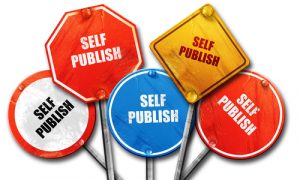Self-Publishing vs. Vanity Presses
 The main appeal of self-publishing is the amount of control the writer, and therefore publisher, retains. DiggyPOD keeps this in mind, and doing so, we take all possible measures to ensure that the author of the book is calling the shots—and owning all the rights. If you keep up with our blog, you’ve seen that we’ve written about the benefits of self-publishing when it comes to contracts, royalties, and copyright. Self-publishing should, in an ideal business, mean that the writer is the owner of the copyright, there is no contract, and royalties don’t exist (because the writer keeps 100% of the profits). Sadly, this isn’t the case for all presses, like a vanity press.
The main appeal of self-publishing is the amount of control the writer, and therefore publisher, retains. DiggyPOD keeps this in mind, and doing so, we take all possible measures to ensure that the author of the book is calling the shots—and owning all the rights. If you keep up with our blog, you’ve seen that we’ve written about the benefits of self-publishing when it comes to contracts, royalties, and copyright. Self-publishing should, in an ideal business, mean that the writer is the owner of the copyright, there is no contract, and royalties don’t exist (because the writer keeps 100% of the profits). Sadly, this isn’t the case for all presses, like a vanity press.
Self-publishing has given rise to many incredible writers who may not have had the chance without it. Just as little as ten years ago, publishing was much, much more difficult than it is now. The only route to getting a book published was long and arduous. Now, however, talented and inspiring authors are getting their voices heard through self-publishing. Because of the opportunity self-publishing boasts, it is important that authors are fully aware and mindful of presses seeking to take advantage of them. These are known as vanity presses.
What is a vanity press?
Also known as a vanity publisher or subsidy publisher (they are very much the same thing, so don’t be fooled if they claim otherwise), vanity presses are publishing houses that authors pay to have their book published, whether this is in the form of paying for the final product or “packages.” They may give the appearance of being selective of who they publish, but the vetting process is usually pretty minimal, because their profits come from author fees. Formal editing and formatting are offered, but for an additional price. Most offer packages beyond just the standard publication and will pressure you into buying them. Fees from a vanity press, after all is said and done, can get as high as the five figure range. This is how they make money, despite making claims that they can successfully sell what they publish.
Some of these presses will try to say they aren’t vanity presses, due to the negative stigma surrounding the term. The term “subsidy” press may be used, but, as previously stated, the terms mean the same thing: trouble for you.
Vanity presses require contracts.
A vanity press will also have the author sign a contract. As previously stated, if you’ve chosen to self-publish, you should avoid any contract that comes your way. Contracts can be very exclusive and hard to terminate, trapping you with the press and often allocating the book’s rights to the press, not you. There have been several cases of authors suing their vanity press over contracts and copyrights.
Other warning signs that a vanity press is taking advantage of you and your work:
- High-pressure sales calls
- Payment plans that lock you into a contract
- Cheap printing cost with high royalty fees
- Additional fees for marketing, editing, and design
What makes self-publishing different?
A lot, really. A true self-publishing company will act as more of a printer than a publisher. There will be no outrageous, extra, or hidden fees – just the printing cost. Self-publishing is actually very cost effective. There will never be a contract, and you will always remain in total control. From editing to cover design to marketing, the writer/publisher makes all the decisions, which means what you end up paying is entirely your call.
In the end, do your research, be careful, and treat your work with the utmost respect. Don’t publish with a company that’s just looking to take advantage of your work for their gain.
